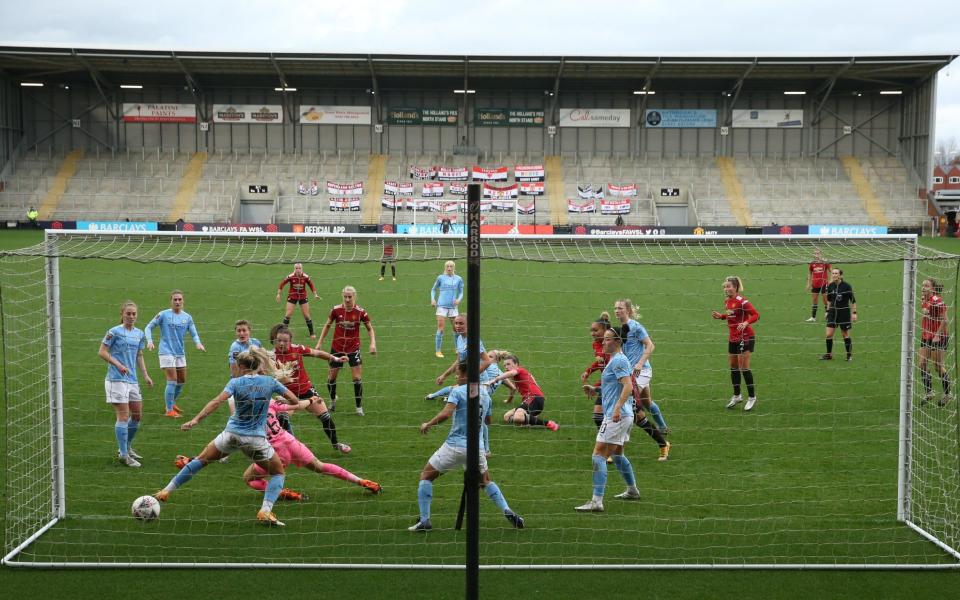FA defends choice of stadiums for Women's Euros after criticism over smaller venues

The Football Association insisted on Tuesday night it has no regrets over its choice of stadiums for next month's Women's Euros after facing criticism that larger venues should have been chosen.
The tournament begins at Old Trafford on July 6 and that fixture plus England's other group-stage matches in Brighton and Southampton are among those to have sold out so far, with Wembley only being used once, for the sold-out final. Total ticket sales for the tournament have already surpassed 450,000 and are on course to be at least double the 240,045 cumulative attendance for the previous Women's Euros in the Netherlands in 2017.
Smaller stadiums such as Leigh Sports Village (capacity 12,000) and Manchester City's Academy Stadium (7,000) are being used, with no host cities in the North East or the South West. leading to claims that the FA was being unambitious.
The FA's chief executive Mark Bullingham said that very few grounds wanted to host Euro 2022 matches when the stadiums were originally being selected in 2019, adding: "We actually had to persuade a few clubs and cities to come forward, so we are actually very happy with where we got to. We think we have got some brilliant venues, but if you think people were knocking our door down to host matches, that was not the case.
"The absolute truth of it is we did a tender process and there were very few that came forward in wanting to host the women's Euros. Overall, I think we are really proud of the fact we have sold [450,000] tickets, the record for women's Euros."

Chris Bryant, the FA's head of tournament, had previously told Telegraph Sport that the sudden recent growth of the women's game means his team was taking on an event that was much bigger than the one for which the governing body had originally bid. Asked on Tuesday whether the FA wished it had chosen bigger venues he replied: “You’ve got to look at what venues were available to us. We’ve got the stadiums that we’ve got, we’re happy with them and I think we’ve got the right blend. We don’t see 'sold-out' as being a bad issue.
"I think we’ve made the right choices with everything we had available at the time, we’ve pushed it as hard as we can."
Bryant also reiterated his defence of Manchester City's Academy Stadium. Its choice as a venue for the Iceland's matches with Belgium and Italy was slammed by Icelandic midfielder Sara Bjork Gunnarsdottir in April as “disrespecting women’s football”. The capacity will be reduced during the tournament because the sections behind the goals are currently standing only and Uefa’s rules do not allow non-seated zones.
"That’s a Uefa tournament requirement, we need to respect that," said Bryant. "We are looking to cover those areas so you won’t see them as empty areas. We don’t think the solution is building up the capacity in one stadium, we need to push that demand around the entirety of the venues as that’s what gets us full capacity across all the venues and gets us the atmosphere.”
Bryant also revealed nearly 100,000 people have bought tickets from outside of the country, planning to travel to England for the competition. "Around 45 per cent of ticket buyers are female and about 23 per cent have been concessions," Bryant added. "Around 96,000 tickets have been sold to buyers outside of England, from around 100 different countries."
England's preparations for their first home major tournament since 2005 continue with a friendly against the Netherlands at Elland Road on Friday (8pm kick-off).

 Yahoo News
Yahoo News 
